Video: Back In the Hunt: New Winemaker Bridges Generations
By Evan Dawson, Finger Lakes Correspondent
I had the opportunity to visit with the new winemaker of Hunt Country Vineyards near Keuka Lake: Jonathan Hunt, son of owners Art and Joyce Hunt. The Hunts declined to say much about the departure of winemaker Chris Wirth, who left the operation last week. "We appreciate Chris' efforts," Art said. "But we've been looking for a way to bring new energy to the winery. Jon has dreamed about this job, and we think it's time."
In the interview, Jonathan - along with his wife, Caroline, and his father, Art - explain the following, which is sure to generate some discussion:
- Why the Hunts don't believe biodynamic winemaking is realistic in the
Finger Lakes and but what they're doing to become more sustainable - Which variety is most exciting to Jonathan (it's not riesling)
- Why Jon and Art are often confused for twins
Jonathan is the sixth generation of Hunts to work the land, and his background took him through Cornell, to California, to New Zealand.
With the help of my supremely talented photographer wife, I'm still learning the ropes of the new Flip cam. I promise the efforts will continue to improve.
In the meantime, I hope you'll check out the video and tell us: Do you agree with the Hunts' assessment of sustainable and biodynamic winemaking? What do you think of Jonathan's favorite varietyl?
Note: Make sure that you have the volume turned up on your computer so you can hear the audio better.


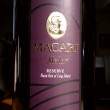
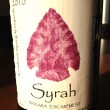
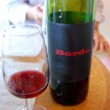
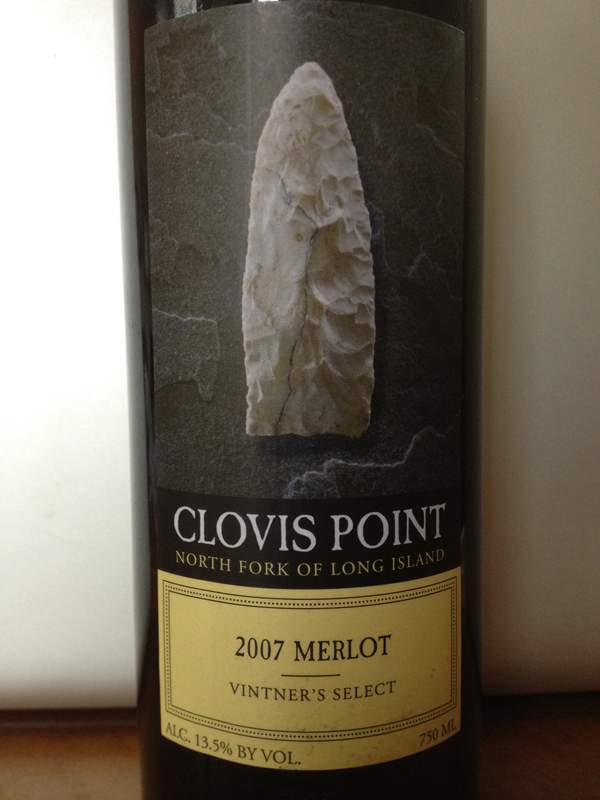
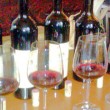
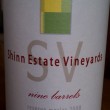
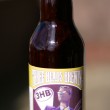
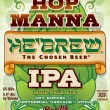
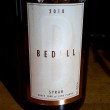
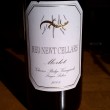
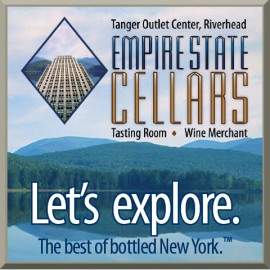

My thanks to the Hunts for spending some time with us. Knowing that family quite well, I wonder if sustainable or biodynamic winemaking has any future at all in the FL. If the Hunts don’t think it’s realistic, I wonder if anyone does locally. It’s much more in vogue on Long Island, so I’m curious to hear from other winegrowers about its viability and challenges.
Nice video Evan-
I agree with a few of their points about sustainable & biodynamic viticulture. There really is no clear and consistent definition for “sustainable”, so it is a pretty vague term. It sounds like they are doing at least a few things to improve their sustainability, like composting their grape pumice. And I also agree that biodynamics , at least in its pure sense, is probably better suited to farms that also contain other crops and animals. For example, Benzinger actually plants other crops and maintains animals in order to encourage biodiversity, aid pest management, and to provide natural weed control and fertilizers. Without such measures, a true biodynamic vineyard would be difficult, if not impossible, to attain. That being said, several Lobg Island wineries (like Shinn Estate Vineyards) do incorporate some aspects of biodynamics though they aren’t fully biodynamic. Without knowing the full spectrum of Hunt’s viticultural practices,it is difficult to comment further- I wonder what other steps they might take (if they aren’t already) to reduce their environmental impact, such as exploring organic pesticides, cover crops for soil nutrient management, etc.
The sustainability points are well taken — there aren’t any defined standards.
What leaves me wondering is Jonathan calling out Valvin Muscat as the variety he’s most excited about. Did you talk to him about that any more than what is on the video? Is he talking about strictly as a varietal wine?
I’ve tasted their VM and, while perfectly drinkable, I’m not sure it’s a wine that is going to set the world ablaze. I don’t see a lot of other wineries rushing to make it or consumers clamoring for it.
It certainly brings floral aromatics to the party, so maybe the future is in blending it into Alsatian-style blends? Just typing out loud here.
I haven’t had enough VM to say anything authoritative about it of course.
I will say that I dig their cab franc in warm years and also enjoyed their 06 rieslings quite a bit.
Lenn -
The whole Hunt family is pumped about VM. I hope one of the Hunts will jump in and tell us more. There are so many Muscat varieties, but perhaps they feel that VM is the king of the Muscats, especially in the FL.
It surprised me, too. I’m always shocked if any FL winemaker doesn’t cite Riesling as the strongest source of excitement, but the Hunts are a unique family!
Do you know how many Muscat varieties are being grown in the Finger Lakes? Any idea?
I’ve tasted Muscat Ottonel from a few producers — some okay, some bad. I don’t have a lot of experience with Muscat from any region though.
Just had a nice chat with one of the Hunt clan, and they helped further explain views on sustainable winemaking. They’ll be jumping in soon to add more.
First, even though it can’t be easily defined, the Hunts have a clear goal of sustainable viticulture. The challenges in explaining what it means might have stopped Jonathan and Art short of saying in strong terms - as I heard from the family today - “Yes, that’s where we want to be.” The exmaples that they mentioned are just steps down that road.
Of course — and I assume the Hunts agree — some wineries (around the world, not necessarily FL) are using terms like “sustainable” as marketing catch-alls without being able to fully spell out what they mean. It’s obvious from the interview that the Hunts are not interested in marketing for marketing’s sake; otherwise, Jonathan would have simply said, “We’re already following sustainable practices, and eventually we’ll be FULLY sustainable! You’ll taste it in the wines!” Instead, he gave an honest answer - even if it didn’t convey the family’s desire to be sustainable. I don’t say this to cover for them; I say this after having a follow-up conversation today.
It’s a very interesting conversation and it’s always great to learn more from the people making the wines.
Lenn -
I’ve seen Valvin and Ottonel here and, I believe, a Canelli in Niagara. Bryan, is that right? It was some kind of Muscat.
Cornell only released Valvin Muscat in 2006 so lets put that in perspective. Maybe they had planted some when it was just a numbered variety, but the plants must still be young, and therefor there cant have been too many vintages of this made on a commercial scale. I planted just a few vines last spring and they are doing well … i guess ill update you on the wines in … 2012? sigh …
I think Hunt has had some Valvin Muscat vines for a few years now. See my post from a year or so ago:
http://lennthompson.typepad.com/lenndevours/2008/04/an-introduction.html
I haven’t tried a newer vintage, but I did think the wine showed some good potential the last time I tried it.
Rowland - Interesting. Are you surprised to hear a winemaker tout it as his most exciting wine right now?
Jason - Nice piece. I wonder if Valvin will become king of the Finger Lakes muscats. It’s intensely aromatic, but I don’t find a perfect match in the palate. We’ll see how it evolves.
I have to admit that in my still-limited experience with Finger Lakes Muscats (I think 3 or 4 different wines) none seemed all that interesting. Aromatic and floral? Yes, but not something I’d want to drink with regularlity.
That’s why I mentioned the blending. If that floral character were backed by a few more layers (and as you point out Evan, a bit more on the palate) there seems to be some potential there.
But what do I know?
My family was being very humble in your interview and, as you pointed out, hesitant to claim to be “sustainable.” There are two reasons for this. First, although we’re continually working to be more and more sustainable, we see these as just small steps towards sustainability. And second, because the term “sustainable” has been used and abused and can mean different thing to different people.
That said, there is an effort to define what sustainable viticulture means in the Finger Lakes. In 2003 I spent the summer working for Environmental Defense in northern California on endangered species preservation on farm land and met Dr. Cliff Ohmart and some of the other creators of the Lodi Sustainable Grape Growing workbook. I brought a copy of the workbook back to Cornell Cooperative Extension (CCE). In the past several years, CCE has created a sustainable grape growers workbook for the region (the effort was lead by Jamie Hawk a family friend and former employee) and we’re engaged in that effort.
“Sustainability” got it’s foot hold in common lexicon in the 1980’s thanks to the Bruntland Commission (also known as World Commission on Environment and Development) by defining sustainable development as development that “meets the needs of the present without compromising the ability of future generations to meet their own needs.” Jonathan and Caroline are the 6th or 7th generation of Hunts to live on the farm (depending on whether you believe the stories passed down, or the historical records we’ve been able to find). While as a farm and family we seem to meet the Bruntland definition, we are not and island, and to be fully sustainable would have to produce our own energy, recycle all materials, etc.
For me, sustainability is an evolution. As Jon said in the video, we are working to continually become more and more sustainable. Jon talked about composting and my Dad talked about the efficiency of the winery and our goal to become energy self sufficient (with wind, geothermal and solar power), but they could have also talked about the Sustainable Agriculture, Research and Education (SARE) grant we received from USDA several years ago to study the use of ground covers (we chose a vetch variety and an ivy) under the vines instead of herbicide (as is the standard practice in NY), the windmill base that they installed on the hill for a small vertical axis wind turbine (we’re still waiting for it to arrive) from Mariah Power (http://www.mariahpower.com/), or the biodiesel processor that Jon built to make biodiesel from waste grease to use in the tractors, or the integrated pest management work that Cornell researchers have done in our vineyards over the years and the bat boxes that Dad built and installed. Caroline could have talked about her masters degree in entomology from Cornell and how she is bringing her enormous knowledge and passion from her family’s organic farm in Oregon (Ayer’s Creek Farm, often featured on NPR, supplies the finest restaurants in Portland and the local community with the most incredible fruits, vegetables, and grains you’ve ever tasted) to Hunt Country. She mentioned the organic vegetable gardens that she and Jon are developing but didn’t mention that she’ll be experimenting with organic grape growing practices to see what is possible at Hunt Country in the future.
“Sustainability” in academia and in the business world is generally talked about as having three pillars: environmental, social and economic. My family’s community engagement has always been enormous ranging from leadership on the local wind committee, to the Keuka Lake Association, to the town planning board, to the Yates Country Arts Council, to founding the Keuka Lake Winery Route years ago, to organizing fund raisers for the local animal shelter, to creating the annual Community Gourmet Harvest Festival (we buy as much local food as possible – this year Caroline and Jon will be growing the produce – and a portion of the proceeds go to the local churches, FFA, and other organizations). Economic considerations are also critical to sustainability because you could have the most environmentally friendly farm around, but if you go out of business, you’ve not sustained your operations.
In my own work (Hunt Green, LLC) one of the projects I’m currently engaged in is looking globally at the impact of agriculture on the climate (according to the IPCC – Intergovernmental Panel on Climate Change http://www.ipcc.ch/ - the ag sector produces about 14% of global greenhouse gas emissions (GHGs) directly and another nearly 20% of emissions indirectly by driving deforestation in the tropics, making agriculture as a sector the second largest contributor to climate change after fossil fuel use). We’re in the process of developing new strategies and financial tools to help reduce the ag sector’s green house gas emissions. In the temperate climes, the wine industry has been way ahead of many of the other ag industries in trying to understand climate change and what it might mean for the wine industry and how the industry will have to adapt. More work is needed on all of these fronts and I hope that the Finger Lakes wine region can help lead the way.
Suzanne,
Thanks for the detailed comment. I hope everyone takes the time to read this, as it is very informative for those of us just beginning to understand what sustainability means. Cheers to your family on their efforts.
Hi Suzanne- my hats off to you and your family for your comprehensive approach to sustainability, despite the absence of true consensus on its definition for wineries. I understand and can appreciate your family’s concerns about over-stating your efforts in this area- I agree that there is a propondrance of “greenwashing” going on throughout the industry (throughout MOST industries), and that Eco-friendly actions must either be clearly defined, monitored and certified (such as organic or biodynamic) or they must be carefully outlined and analyzed for impact (rather than relying on somewhat meaningless, amorphous terminology). This is a real challenge in that many states and localities have developed their own definitions and certifications, and “green” comes in many shades. That is why I appreciate the efforts of Cornell (which I recently wrote about) and others to develop a process and standards by which vineyards in NY can seek sustainability.
I would encourage you, however, not to shy away from advertising the great work you are doing in this area. I actually think it is your responsibility to openly share this information, not for the purpose of bragging or self-congratulation, but to help to educate consumers and set the bar higher for other producers. As an environmentally conscious consumer, I make many purchasing decisions based upon the values and actions of companies, and I want to be able to make informed decisions. I also think that the more companies vocalize their sustainability efforts, the more the market will support and demand those efforts from others. Cheers to you all, and thanks for looking out for our shared planet.
Suzanne: Thanks for commenting, it is certainly great to hear about all the things that are REALLY going on at the winery/vineyard.
Given all that IS going on, it’s surprising to re-watch this video and see how… almost dismissive Jonathan is of sustainability. He certainly seems to have sold his own efforts (and that of the entire family) short in this regard.
I agree with Megan, you guys should absolutely be talking about this. I’m not saying that it should be the leading edge in your marketing, but it should absolutely be talked about. Based on my interactions with Jim Alsina and your father in the past, I had NO idea that you were doing so many of these things. And, the content of this video barely gives a hint either.
People should absolutely know that you are taking these steps. They care.
That’s all great to hear. They’ve definitely been shy about talking about our sustainabilty efforts. I’ve been emailing with Jon about the video and I’ll paste what he wrote for you below (he’s working on some blends at the moment) but will hopefully get online soon to respond to the VM comments.
And I promised Morgan and Evan that I’ll keep closer tabs on your blog!
From Jon regarding sustainability efforts at Hunt Country:
Due to the short nature of the interview I tried to keep the answers concise. I could go on for pages about the steps we have taken to improve our sustainability. We have been doing many things on the farm that are steps toward sustainablity on every level. In our cars we run Green Diamond tires, made in the USA (Pennsylvania I believe) out of recycled materials and distributed by small family owned businesses. We have been experimenting with making biodiesel and using it in our vineyard tractors. We work very hard to conserve electricity both in the house and winery. We are installing a small 1.2KW wind turbine as an experiment and a demonstration to see how economically viable it is on our site. If that goes well we will hopefully be putting a larger one up (still very small compared to the commercial ones.)
We have always been a minumum tillage vineyard. Unlike conventional commodity farming (corn/small grains) vineyards require very little tillage once established. The biodiversity of both plant and insect populations within the vineyard is hundreds of times greater than that of the average golf course. This diversity encourages many native pollinators such as solitary bees, and helps encourage many species of native birds including predatory birds such as a variety of hawks, kestrels and owls. Our vineyard manager regularly scouts the vineyard and applies the latest IPM research and techniques to our pest control program, thus minimizing our potential environmental impact from pesticides while maintaining healthy vines.
We have been running low growing ground cover trials directly under the grape trellis for many years in hopes of reducing bare soil in the vineyards and the potential for erosion. I produce around 200 tons of compost a year with our grape pummace and yeast lees (leftovers from pressing grapes and fermentation) by mixing it 50/50 with certified organic cow manure from a local dairy. This is done in the fall, and the resulting compost is used following year in both the vineyards and the gardens. There are many other things we do that are environmentally friendly. How to make ourselves more sustainable is a frequently held discussion. We love to think that someday we will be able to say we are totally sustainable, I just personally like to be cautious when using that term.
We are a fairly diverse farm as far as wineries go. We own 173 acres and manage another 123 acres of adjacent land, of that there are about 70 acres of grapes total. We sell a small portion of our grapes to other local wineries and we buy a portion of our grape needs from other local growers.
In addition to grapes we also sell hay to local livestock farmers and horse owners. In the mid 1980′s we began to turn former grazing land into forest. We heat several of our buildings (including the house) with firewood harvested from our own woodlot and have done so since the beginning of the farm (1850′s). Generally the wood harvested is from dead or severely diseased trees. Wood heat is ideal in our situation because we grow the wood ourselves and do not burn enough to deplete the forest, so it is about as close to carbon neutral as possible.
Jonathan,
Thanks for adding more detail. Certainly in an interview format it’s difficult to get into this level of specificity; I think I and some commenteres were just a bit surprised that your initial reaction to the question of sustainability was less than enthusiastic. I don’t blame you for your concern regarding the misuse of “green” terms - Wine Conscience said it best in her comment - but given what you and Suzanne have written here, you have no need to feel shy about sharing your efforts. No one could possibly accuse your family of employing green terms for marketing purposes alone.
In fact, you are doing so much that the public doesn’t realize that I think I should return later this year and put together a piece simply on these efforts. If your family is willing to share it, the public should hear it. As someone who appreciates winemaking that is as naturally based as possible, I applaud the efforts.
This is a fantastic discussion! I can’t help but add my two cents. As another Hunt sibling, I admit to some bias, but I would agree with Jon: the Valvin Muscat is also my current favorite. This could be partly because of its novelty, but my friends here in Boston LOVED it too. As far as I know, it’s still only being sold at the winery so I was very lucky to have had a few bottles to share with them. Their response was overwhelming, and this crew is quite sophisticated in their tastes. It was perfect for the evening, because we had beautiful spring weather and the intense floral, fruity nose matched the mood: pure joy at being able to gather on our balcony again, after a long hard winter.
(Of course, it hasn’t quite displaced the Vidal Ice Wine as my long-time overall favorite.)
On another note, I didn’t think Jon (or Dad or Caroline) were dismissive of sustainability at all! I came away with quite the opposite impression. Maybe I missed something? But I do agree with previous comments that we could always do more to let the world know about the many ways the Hunt family continues to foster understanding of sustainable grape growing and wine making, and takes increased responsibility for the full range of potential environmental impacts of wine production. The winery’s website does feature some of these efforts, but there is always more to be said. Things do get a little busy at the winery, though, and I for one prefer “more action” versus “more talk.” But we can do both.
Evan did a great job interviewing, and kudos to Morgan for superior camera work! I adore this blog and salute your efforts. I’ll raise my glass to you all tonight!
Carolyn,
A quick take on reaction to Jon’s response regarding sustainability: The first thing he said seemed to minimize the concept of sustainability given its nebulous nature. As we’ve now discussed at length, it’s understandable why that is, but the average viewer is looking for his first reaction. When I asked about sustainability his first reaction wasn’t, “Yes! Let me explain…” It was along the lines of, “Eh, the term doesn’t mean much because it’s different things to different people.” Suzanne used exactly the right word to capture Jon’s reaction: Humble. But to some it comes off as lukewarm or even dismissive.
Bottom line, there’s a strong group of people reading and watching who are encouraging you guys to be more forward and proud! You deserve to be. Your efforts are not the easy road and consumers will appreciate them!
I started working in the Hunt Country tasting room about two years ago while working on a degree in environmental science at RIT. I don’t speak on behalf of Hunt Country or any of the members of the Hunt family but as a person with an environmental/ecological background. That said, I despise the word sustainability. It is the sexy megafauna of green business and environmental practices. People want to slap “sustainable” on everything but the problem (in my opinion) is that it is not a small scale appellation. Sustainability requires many working parts. For a single company (in this discussion, a winery) to be considered sustainable is an incredibly tall order. Should it be pursued? absolutely; for every step forward is a step closer.
Hunt Country Vineyards, as I see it is simply a piece of the community acting locally and thinking globally (for instance, 100% of their wines come from New York State grapes), which has always been the take home message of sustainability for me.
As Suzanne pointed out the Hunts are constantly on a quest to find new ways to improve their farm’s environmental approach. Their excitement in new approaches is not limited to the environmental footprint of their farm but also in the products they produce as a business. It seems as if HCV always has a new hybrid growing in some small corner of the vineyard. The winery is always willing to give a new grape a shot, after all that’s the history of winemaking. Everyone knows Riesling, it has its own month here in the Finger Lakes (May). Rieslings from the Finger Lakes region have a reputation of high quality but that isn’t groundbreaking information. Valvin Muscat however is still in its infancy yet it surprises many of the people who come into the winery and try it; and that is exciting. It is a great feeling to pour a varietal/grape that a customer has never heard of and to see them truly enjoy it. Is Valvin Muscat the next Riesling? Who knows (that is a tall order). But it takes time for something so new to find its place in an industry that is so large. Not many people were clammoring for more of Johnny Depp after Nightmare on Elm Street….
Evan, I agree that Valvin Muscat is not a knockout, but I found it be “just fine” which is leagues above where I found most hybrids. The aromatics certainly lend it some favors.
I would like to revisit it, however, since it was over a year ago that I tried it and I’m not even sure what my expectations were at the time.
Jason - With Valvin Muscat, the aromatics provide the hook. It’s very, very pretty. I think it will sell like crazy.
I can understand why Hunt Country would be excited about Valvin Muscat. From the ’07 vintage this wine set the benchmark for the potential of this varietal. Just because this is not Riesling does not mean you can not be excited about this varietal. The intense floral and orange notes on this wine make its presence hard to ignore on a tasting flight. This wine made it to the sweepstakes round of the International Eastern Wine Competition and many judges were taken with its character. I have no doubt that this wine sells out fast at the winery and no doubt that this wine will garner more recognition for Hunt Country in the future.
Peter Becraft/Anthony Road Wine Co.
FYI: lest anyone think it’s just the Hunts who are excited about the VM…
Valvin Muscat 2007
Gold - 2008 OCC Great Lakes Great Wine Competition (MI)
Valvin Muscat 2008
Gold - 2009 Pacific Rim International Wine Competition (CA)
Gold - 2009 OCC Great Lakes Great Wine Competition (MI)
Double Gold - 2009 International Eastern Wine Competition (NY)
Double Gold & Best New York Wine - 2009 The Big E Northeast Gold Wine Competition (MA)
Gold- Indy International Wine Competition (IN)
(I should have said, the Hunts and Peter at AR!) Thanks to all for your insights and encouragement. Cheers!